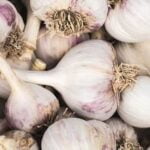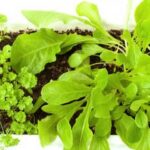Is worms soil good for vegetable gardens? Many gardeners swear by the benefits of using worm soil, also known as vermicompost, to nourish their vegetable patches.
Worm soil is a nutrient-rich substance created by earthworms as they break down organic matter. In this article, we will explore the role of worms in soil health, the nutrient-rich characteristics of worm soil, the benefits of using it in vegetable gardens, how to incorporate it into your garden, common misconceptions about its use, success stories, and tips for maintaining healthy soil with worms.
Worms play a crucial role in maintaining the health of our soils. They aerate the soil and create tunnels that allow air and water to penetrate deeper into the earth. This helps to improve overall soil structure and drainage. Additionally, their burrowing activities bring organic matter closer to the root zone of plants, providing them with essential nutrients.
One of the key advantages of worm soil is its nutrient-rich composition. As earthworms digest organic material such as kitchen scraps and yard waste, they produce a dark, crumbly substance that is high in nitrogen, potassium, phosphorus, and other trace minerals essential for plant growth. This makes worm soil an excellent natural fertilizer for vegetable gardens without the need for synthetic additives.
Overall, using worm soil in vegetable gardens can lead to healthier plants with improved yields while reducing the need for chemical fertilizers. In the following sections, we will delve deeper into how exactly this can be achieved and provide insight into common misconceptions about its use along with practical tips for successful maintenance.
The Role of Worms in Soil Health
Worms play a vital role in maintaining soil health and fertility. Their activities, such as burrowing, feeding, and excreting, contribute to the physical structure and overall quality of the soil. The presence of worms in the soil indicates a healthy ecosystem with a balanced level of organic matter and nutrients.
One of the key benefits of worms in soil health is their ability to improve soil structure. As they move through the earth, they create channels that allow air and water to penetrate deep into the ground. This aeration and drainage are essential for promoting root growth and preventing waterlogged conditions that can lead to plant diseases.
Additionally, the excretions of worms, known as castings or worm poop, are rich in nutrients such as nitrogen, phosphorus, potassium, calcium, and magnesium. These nutrient-rich castings act as natural fertilizers that enhance plant growth and improve the overall health of vegetable gardens. The presence of worms also helps break down organic matter like dead leaves and plant debris into humus, which further enriches the soil with essential nutrients.
Nutrient-Rich Characteristics of Worms Soil
Nutrient Content of Worms Soil
Worms soil, also known as vermicompost, is renowned for its high nutrient content. It is packed with essential nutrients such as nitrogen, phosphorus, potassium, and micronutrients that are vital for plant growth. The process of vermicomposting involves the breakdown of organic matter by earthworms, resulting in a nutrient-rich soil amendment that can greatly benefit vegetable gardens.
Microbial Activity
One of the key characteristics of worms soil is its high microbial activity. The digestive processes of earthworms create an environment rich in beneficial bacteria and fungi that contribute to the breakdown of organic matter and the release of nutrients in a form that is readily available to plants. These microorganisms also help improve soil structure and enhance nutrient uptake by plants, leading to healthier and more vigorous growth.
pH Balance
Another important characteristic of worms soil is its ability to maintain a balanced pH level. The presence of earthworms in the soil helps regulate pH by neutralizing both acidic and alkaline conditions. This is particularly advantageous for vegetable gardens, as most edible crops thrive in slightly acidic to neutral pH levels. The use of worms soil can therefore help create an optimal growing environment for a wide variety of vegetables.
Benefits of Using Worms Soil in Vegetable Gardens
Worms soil, also known as vermicompost, is an incredibly beneficial addition to vegetable gardens. This natural fertilizer is produced by worms, which decompose organic matter and create nutrient-rich compost that is ideal for plant growth. There are several key benefits to using worms soil in vegetable gardens:
- Improved Soil Structure: Worms soil helps to improve the overall structure of the soil in vegetable gardens. It creates a more crumbly and porous texture, allowing for better water infiltration and air circulation.
- Enhanced Nutrient Content: Worms soil is packed with essential nutrients such as nitrogen, phosphorus, potassium, calcium, and magnesium that are vital for plant growth. These nutrients are released slowly over time, providing a steady supply of nourishment for vegetables.
- Healthy Microbial Activity: The presence of worms in the soil promotes healthy microbial activity. This helps to break down organic matter further and release even more nutrients into the soil, creating a thriving ecosystem for plant roots.
Incorporating worms soil into vegetable gardens can significantly benefit the overall health and productivity of the plants. By adding this nutrient-rich compost to the garden beds or mixing it with potting soil for container gardening, gardeners can ensure that their vegetables receive ample nourishment for optimal growth.
Additionally, using worms soil in vegetable gardens can lead to healthier plants with increased resistance to pests and diseases. The combination of improved soil structure, enhanced nutrient content, and robust microbial activity creates an environment where vegetables can thrive and produce bountiful harvests. Gardeners who have incorporated worms soil into their gardening practices have reported significant improvements in plant growth and overall garden health.
How to Incorporate Worms Soil Into Vegetable Gardens
Worms soil, also known as vermicompost, is a nutrient-rich and beneficial type of soil that can greatly enhance the health and productivity of vegetable gardens. Incorporating worms soil into your garden can provide a natural and sustainable way to nourish your plants, improve soil structure, and support beneficial microorganisms. Here are some ways to effectively incorporate worms soil into your vegetable garden:
- Topdressing: One simple way to incorporate worms soil into your vegetable garden is by topdressing the soil around your plants. Simply sprinkle a layer of vermicompost on the surface of the soil, and gently work it in with a rake or hand tool. This will infuse the soil with valuable nutrients and improve its overall quality.
- Seed Starting Mix: When starting seeds indoors or in seed trays, you can create a customized seed starting mix by blending vermicompost with other growing mediums such as peat moss or coconut coir. This will provide young plants with essential nutrients as they begin to grow.
- Compost Tea: Another way to use worms soil in your vegetable garden is by making compost tea, which is essentially a liquid fertilizer created by steeping vermicompost in water. You can then apply this nutrient-rich solution directly to the roots of your plants for a quick boost of nutrition.
Incorporating worms soil into your vegetable garden not only supports plant growth but also promotes ecological sustainability. By utilizing this natural resource, you are reducing waste, supporting healthy ecosystems, and cultivating fertile and productive garden soil.
Overall, incorporating worms soil into your vegetable garden is an excellent way to improve the health and productivity of your plants while reducing reliance on chemical fertilizers. Whether you choose to topdress the soil, create custom seed starting mixes, or brew compost tea, using vermicompost can significantly enhance the vitality of your garden and contribute to its long-term success.
Common Misconceptions About Using Worms Soil in Vegetable Gardens
Worms Soil Is Unsanitary
There is a common misconception that using worms soil in vegetable gardens can lead to unsanitary conditions. However, the reality is that worms actually play a crucial role in breaking down organic matter and turning it into nutrient-rich soil. The process of vermicomposting, which involves using worms to decompose organic material, actually helps to eliminate harmful bacteria and pathogens, making the soil healthier for growing vegetables.
Worms Soil Attracts Pests
Another misconception about using worms soil in vegetable gardens is that it attracts pests such as flies, ants, or other insects. While it is true that worms can attract some pests, proper vermicomposting methods and maintenance can help mitigate this issue. By properly managing the moisture content and the type of organic material being composted, it is possible to control pest attraction and create a healthy environment for both earthworms and vegetable plants.
Worms Soil Produces Inferior Vegetables
Some gardeners may believe that using worms soil will result in inferior quality vegetables. On the contrary, worms soil is rich in nutrients such as nitrogen, phosphorus, potassium, and other essential elements that are crucial for plant growth. When incorporated into vegetable gardens, worms soil can significantly enhance the health and yield of vegetables by providing them with the necessary nutrients for robust growth.
Success Stories of Using Worms Soil in Vegetable Gardens
Many gardeners have experienced great success using worms soil in their vegetable gardens. One particular success story comes from a gardener in Oregon who saw a significant improvement in the health and yield of her vegetable plants after incorporating worms soil into her garden.
She reported that her plants grew larger, produced more fruit, and had a richer flavor compared to previous years when she did not use worms soil. The gardener also noticed that her soil retained moisture better, reducing the need for frequent watering.
Another success story comes from a community garden in New York City, where volunteers began using worms soil to rejuvenate the depleted soil in their raised beds. They documented a remarkable transformation in just one growing season, with an abundance of healthy, vibrant vegetables that were enjoyed by both the volunteer gardeners and the local community. The volunteers credited the worms soil for replenishing essential nutrients and improving soil structure, which ultimately led to bountiful harvests.
In addition, a study conducted by researchers at a university in California found that vegetable gardens treated with worms soil showed increased resistance to common plant diseases and pests. The researchers observed fewer instances of wilting, stunted growth, and insect damage in the garden plots where worms soil was added.
These success stories highlight the positive impact that worms soil can have on vegetable gardens, providing inspiration for other gardeners to consider incorporating this natural resource into their own gardening practices.
| Success Stories | Location |
|---|---|
| Oregon Gardener | Oregon |
| New York City Community Garden | New York City |
| California University Study | California |
Tips for Maintaining Healthy Soil With Worms in Vegetable Gardens
Maintaining healthy soil with worms in vegetable gardens is essential for ensuring the success of your crops. One tip for maintaining healthy soil with worms is to avoid using chemical fertilizers and pesticides, as they can be harmful to the worm population. Instead, opt for organic and natural alternatives that will promote a healthy environment for worms to thrive.
Another important tip is to regularly add organic matter to the soil, such as compost or mulch. This helps provide essential nutrients for both the plants and the worms, promoting a balanced and fertile growing environment. Additionally, avoiding compacting the soil is crucial, as it can disrupt worm tunnels and hinder their movement within the soil.
Furthermore, it’s essential to keep the soil moist but not waterlogged. Worms require a damp environment to survive, so ensuring that the soil maintains adequate moisture levels is vital. Avoid overwatering, as this can lead to oxygen deprivation in the soil and negatively impact worm activity.
| Tips | Benefits |
|---|---|
| Avoid using chemical fertilizers and pesticides | Promotes a healthy environment for worms to thrive |
| Add organic matter such as compost or mulch | Provides essential nutrients for plants and worms |
| Avoid compacting the soil | Promotes natural worm tunnels and movement within the soil |
| Maintain adequate moisture levels in the soil |
Conclusion
In conclusion, it is evident that worms soil, also known as vermicompost, is indeed beneficial for vegetable gardens. The nutrient-rich characteristics of worms soil contribute to the overall health and productivity of the soil, resulting in improved plant growth and yield. The role of worms in maintaining healthy soil cannot be underestimated, as they help aerate the soil, break down organic matter, and release essential nutrients for plants.
By incorporating worms soil into vegetable gardens, gardeners can expect to see notable improvements in their crops. The success stories of using worms soil in vegetable gardens speak for themselves, with many gardeners reporting healthier plants, better tasting vegetables, and increased harvests. Additionally, the sustainable nature of vermicompost aligns with environmentally-friendly gardening practices.
While there may be misconceptions about using worms soil in vegetable gardens, such as concerns about odor or difficulty in maintenance, these can be easily addressed with proper care and management. By following tips for maintaining healthy soil with worms in vegetable gardens, gardeners can ensure that they are maximizing the benefits of vermicompost for their crops. Overall, the consensus is clear: worms soil is a valuable addition to any vegetable garden.
Frequently Asked Questions
Should You Put Worms in Your Vegetable Garden?
Worms can be beneficial to a vegetable garden because they help aerate the soil, reduce compaction, and break down organic matter into nutrients that can be easily absorbed by plants. Their castings (worm poop) also improve soil structure and fertility.
However, the decision to introduce worms should depend on various factors such as the type of vegetables being grown, current soil conditions, and existing pest issues.
What Are the Disadvantages of Earthworms in Soil?
Earthworms in soil can have some disadvantages depending on the specific situation. For instance, in certain cases, earthworms may increase the loss of organic matter through decomposition, which can lead to a decrease in overall soil fertility.
Additionally, if introduced into an ecosystem where they are not native, earthworms could potentially disrupt the balance of the existing plant and animal species.
What Vegetables Like Worm Castings?
Many types of vegetables respond well to worm castings, which are rich in nutrients like nitrogen, phosphorus, potassium, and calcium. Vegetables such as tomatoes, peppers, cucumbers, lettuce, kale, and broccoli benefit from the addition of worm castings to their soil.
The improved soil structure provided by worm castings also helps promote healthy root development and overall plant growth for these vegetables.

If you’re looking to get into vegetable gardening, or are just looking for some tips on how to make your current garden better, then you’ve come to the right place! My name is Ethel and I have been gardening for years. In this blog, I’m going to share with you some of my best tips on how to create a successful vegetable garden.





